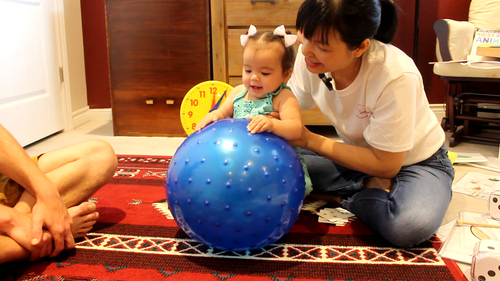The early years of a child's life are crucial for brain development. From birth to six years old, children's brains undergo rapid growth, forming the foundation for cognitive, emotional, and social skills that will last a lifetime. Proper health and nutrition during this period are essential for maximizing brain productivity and ensuring that children reach their full potential.
The Importance of Early Brain Development
The brain is an incredibly complex organ, and during the first six years of life, it develops at an astonishing rate. By the age of three, a child's brain has already reached 80% of its adult size. This period is marked by the formation of neural connections at an unprecedented pace—about 1 million new neural connections per second. These connections are the building blocks for all future learning and behavior, making it vital to support this growth with optimal health and nutrition.

Health and Nutrition: Key Factors for Brain Productivity
1. Balanced Diet and Brain Growth
A balanced diet is one of the most critical factors in promoting brain productivity. Nutrients such as proteins, fats, vitamins, and minerals all play specific roles in brain development. For example, proteins provide the amino acids necessary for neurotransmitter production, while healthy fats like Omega-3 fatty acids support the formation of myelin, the protective sheath around neurons that enhances signal transmission.
Key Nutrients:
2. Hydration and Cognitive Function
Hydration is often overlooked, but it is a critical aspect of health and nutrition that significantly impacts brain productivity. Even mild dehydration can impair attention, memory, and cognitive function in young children. Ensuring that children stay hydrated throughout the day supports optimal brain function and learning.
3. The Role of Vitamins and Minerals
Vitamins and minerals are the unsung heroes of brain development. Vitamin D, for instance, is essential for brain growth and the formation of neural circuits. Similarly, B vitamins play a crucial role in energy production within the brain, supporting cognitive processes such as memory and concentration.
Key Vitamins and Minerals:
-
Vitamin D:Supports brain development and immune function.
-
B Vitamins: Involved in the production of neurotransmitters and energy metabolism.
-
Zinc:Essential for brain structure and function, particularly in the hippocampus, the area responsible for memory formation.
Health Practices that Enhance Brain Productivity
1. Regular Physical Activity
is not only beneficial for physical health but also for brain productivity. Exercise increases blood flow to the brain, which enhances the delivery of oxygen and nutrients. This boost in circulation supports the growth of new neurons and the formation of new neural connections, both of which are critical for learning and memory in young children.
2. Adequate Sleep
Sleep is a vital component of health and nutrition that profoundly affects brain productivity. During sleep, the brain consolidates memories, processes information, and undergoes essential maintenance tasks. For children aged 0-6, adequate sleep is crucial for brain development and overall well-being.
Sleep Guidelines:
1. Newborns (0-3 months): 14-17 hours per day
2. Infants (4-11 months): 12-15 hours per day
3. Toddlers (1-2 years): 11-14 hours per day
4. Preschoolers (3-5 years): 10-13 hours per day
3. Healthy Eating Habits
Establishing healthy eating habits early in life sets the stage for lifelong brain productivity. Encouraging a diet rich in fruits, vegetables, whole grains, and lean proteins provides children with the nutrients they need to thrive. Limiting sugary snacks and processed foods can also help prevent issues like obesity and attention deficits, which can negatively impact brain function.

The Impact of Poor Health and Nutrition on Brain Productivity
While proper health and nutrition can significantly boost brain productivity, the opposite is also true—poor health and nutrition can hinder brain development. Malnutrition, for instance, can lead to delays in cognitive and motor development, affecting a child's ability to learn and interact with the world. Iron deficiency, one of the most common nutritional deficiencies in children, is linked to poor attention, slower cognitive processing, and behavioral problems.
Additionally, unhealthy eating patterns and a lack of physical activity can contribute to the development of chronic conditions such as obesity, which is associated with lower cognitive performance and academic achievement in children.
In conclusion, health and nutrition are fundamental to maximizing brain productivity in children aged 0-6. By providing a balanced diet rich in essential nutrients, ensuring proper hydration, promoting physical activity, and establishing healthy sleep patterns, parents and caregivers can support optimal brain development during these critical early years. Investing in a child's health and nutrition today lays the foundation for a lifetime of cognitive success and well-being.
Like and follow our fanpage to get more information about children caring.








